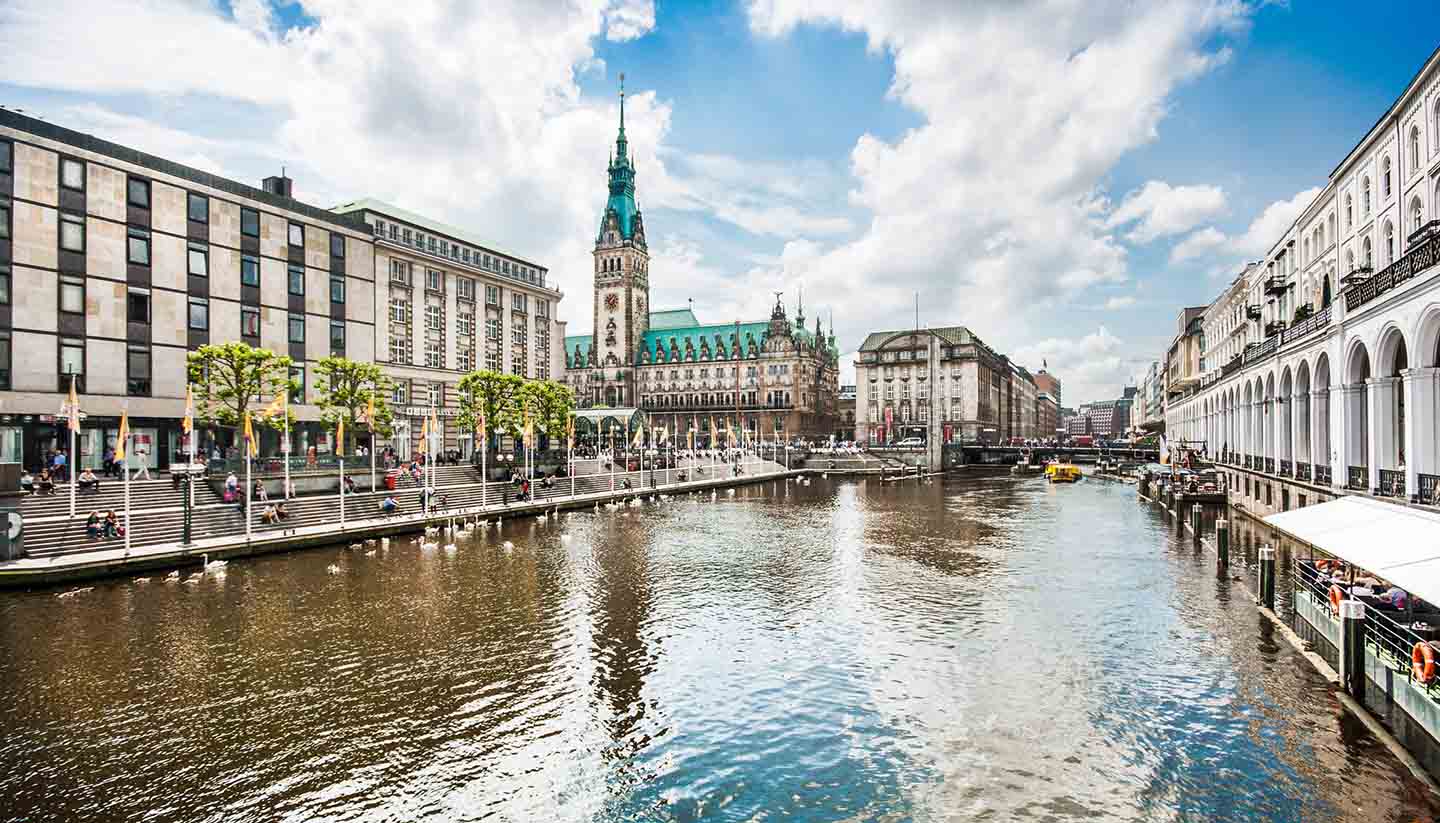Hamburg History
The ‘Hammaburg’ was the name given to a fortified structure, complete with moat, that was first built here by Saxons between the Elbe and Alster Rivers in AD825. The fortress was raided and burnt by marauding Vikings on numerous occasions over the next century, but as the nearby town of Lübeck flourished to become a major regional power, Hamburg, perfectly located 100km (62 miles) from the mouth of the Elbe, gladly donned the mantle of North Sea port and trading post. Commerce then took over as Hamburg’s principle function, and has remained so to this day.
By the end of the Middle Ages, Hamburg was really coming into its own as a major economic power in Northern Europe, developing an independent infrastructure, including its own stock exchange and bank.
As a fortified and protected city always careful to adopt a politically neutral stance, Hamburg continued to prosper while war and conflict debilitated many other parts of Europe. In fact, Hamburg was further bolstered by a profusion of Dutch seafaring merchants who immigrated to the Elbe region during the ’80-year war’ for religious independence, which ravaged the Netherlands during the late 16th and early 17th centuries.
However, this thriving city-state could not escape the clutches of Napoleon, and was annexed into part of the French Empire in 1810. Yet this was short-lived, as the Emperor was overthrown five years later, and by 1819 the newly titled ‘free and hanseatic city of Hamburg’ was enjoying business as usual.
Hamburg concentrated on broadening and developing its trading connections across the globe, including Africa, South America and the Far East, and the harbour city expanded dramatically to accommodate new trade, swallowing up many small villages on the southern banks of the Elbe.
Yet Hamburg’s more recent history has been less rosy. Fire destroyed a quarter of the city centre in 1842, and a firestorm started by Allied bombing during WWII totally eradicated the eastern half of Hamburg, which took another 20 years to rebuild.
Today, however, the city that’s also the continent’s second largest port continues to enjoy its centuries-old tradition of economic good fortune.
Did you know?
• Hamburg has 2,300 bridges - more than Amsterdam and Venice combined.
• Opened in 1907, the city's zoo, Tierpark Hagenbeck, has no cages. Instead, animals freely roam in open enclosures surrounded by moats.
• The Beatles regularly performed in different clubs in Hamburg between 1960-62 before achieving worldwide fame.


